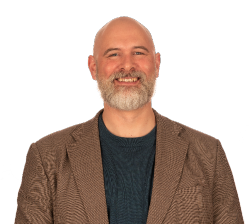Charles Maasz: Hospitality, asylum and distress

Charles Maasz
Charles Maasz, chief executive of Glasgow City Mission, reflects on the recent tragic events in Glasgow which saw a stabbing attack take place at the Park Inn Hotel.
It is a fact that in Glasgow we are host to high numbers of people and communities who have fled all manner of situations from all corners of the globe. It is not an exaggeration to state that many will be managing varying levels of deep emotional distress and trauma.
Adding to this trauma is the process of seeking asylum in the UK. During the process, there are often very long periods in which there is no obvious progress of the asylum claim, which can breed a sense of insecurity. There is no option to work and almost no access to public funds with the exception of a meagre personal allowance – currently less than £5.50 per day. There is the increased risk of falling prey to organised crime and the different forms of enslavement that can come from that. And then, during lockdown, the Home Office housing provider made the decision to move hundreds of people in the asylum process from their Home Office accommodation into hotels to remove their daily allowance completely.
At Glasgow City Mission we hear many first-hand accounts from people from every community as to how the pandemic is having a detrimental impact on people’s mental and emotional health and on their wellbeing. Indeed, once we have moved through and past this period of social distancing and lockdown, it is reasonable to assume that many stories will emerge of the ways in which emotional, physical, developmental and mental health have been negatively impacted – with ongoing serious impacts on our population.
Justice and Peace
As was pointed out in many responses to the recent Black Lives Matter campaigns around the world; one cannot expect genuine peace where there is a persistence of injustice. People cannot thrive where they lack agency and a sense of control over their lives. People do not generally thrive if they are not well nurtured or have quality attachments from a very young age. We, as people of faith and with activist hearts, must consider the deep issues around tragic events and ask the question – what can we do that we not already doing to further the mission of God?
At Glasgow City Mission we are all grieving for those affected by last Friday’s tragic events. Some of the guests of the hotel are known to our staff and we continue to support them in whatever way we can.
Since lockdown began, our outreach teams have regularly reported an increase in violence and chaos on the streets of the city centre. Most of this activity goes unreported but it is a reminder, were any required, that people are quite capable of inflicting horrific violence on one another no matter their ethnicity. And so, whilst the press response was rightly focused on the asylum population in Glasgow, it is fair to say that ‘man’s inhumanity to man’ in Glasgow, and elsewhere, is not restricted to these widely reported stories alone. Horrific things are happening every day and should grieve our hearts as we ponder the heart-breaking consequences.
Please pray
We must pray for the friends and family of Badreddin Abadlla Adam who died last Friday. Their pain and confusion can barely be imagined. Pray especially for those who might be vulnerable to such violent breakdowns that the Lord intervene in their lives, that we be better placed to minister to the people whom God has permitted us to know. We can challenge ourselves practically to better provide a beacon of light, hope, faith, community and a place of belonging so that the stranger can be made to feel as though they belong. Bit by bit, by being salt and light, the Kingdom example can be demonstrated and hopefully the chances of a second incident of the type we saw last week will be minimised.









